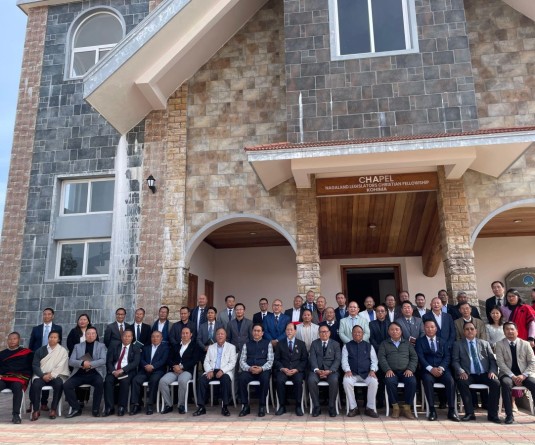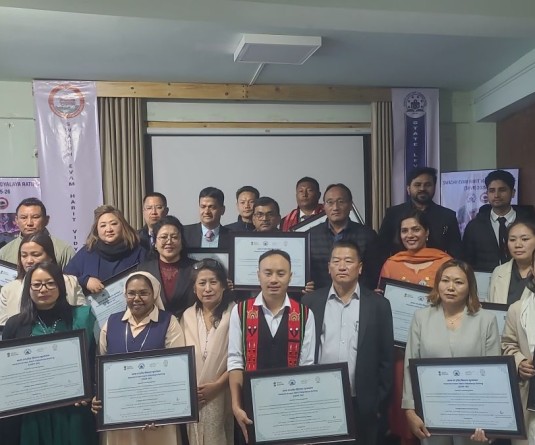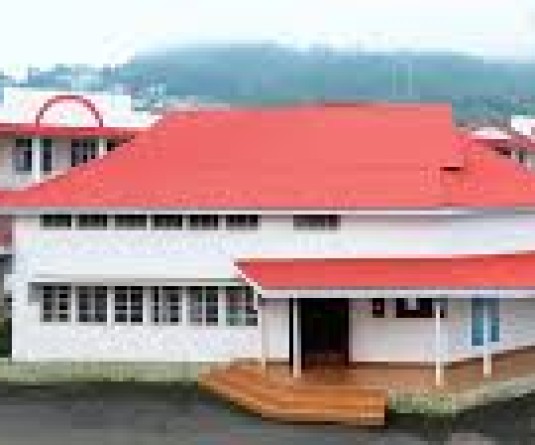
Morung Express News
Dimapur | April 25
Ten years after the ‘Journey of Common Hope’ initiated by the Forum for Naga Reconciliation (FNR) to end hostilities and bring reconciliation among Naga political groups, the journey towards a shared Naga future continues with ‘Walking the Naga Day.’
As part of the year-long activities of ‘Walking the Naga Day’, FNR organized an open public interaction on the theme ‘Reasoning Together’, here at Elim Hall, DABA, on Wednesday.
The ‘Reasoning Together’ focused on shared values, to identify, cultivate, nurture and strengthen shared values of belonging, to discuss and explore pragmatic steps of forgiveness, healing and reconciliation to take the ‘Naga Concordant’ forward. The public interaction also welcomed constructive criticisms and suggestions to empower the Naga Reconciliation process.
James Khalong of Oriental Theological Seminary, the moderator of the open interaction posed “under the aegis of the ‘Journey of Common Hope’, where is the journey heading? Will it come to an end? What do we foresee of the journey given the present political climate today?”
FNR Convenor, Rev. Dr. Wati Aier and members Dr Aküm Longchari and Niketu Iralu, gave introductory notes before the moderator opened the public interaction session.
Giving a brief background about the birth of FNR in 2008 and the ‘Journey of Common Hope’ thus far, the FNR convenor admitted, “We are under no kind of illusion; we know the journey would be tough.”
Dr Longchari said though internecine violence among Naga political groups may have abated, the question of reconciliation and healing still remains. “Can there be a shared future without forgiveness? If not then what are the values of forgiveness and healing in the Naga context?” Longchari asked.
He also said that at the moment, Nagas are struggling against fear and have become complacent and comfortable.
“Somewhere, something has gone wrong”, Niketu Iralu said. Quoting Socrates’ “A life not examined is not worth living,” Iralu said in the Naga context too, the struggle if not examined might go wrong. Iralu also stressed on the need to restore health to the Naga struggle.
Other FNR members including Dr. Phyobemo Ngullie, Nipuni Piku, Dr. Lanusangla Tzudir, Abieu Meru and Vitono Haralu, responded to queries and noted suggestions and comments raised by the public, comprising of intellectuals, retired bureaucrats, civil society, youth and students.
Commenting on proceeding of the interaction, Mapu Longkumer IAS (Retd) observed that presently Naga society is in anarchy and at a choatic state. “Every Naga is a general, but with no soldiers; A leader, but no followers,” he said.
Consequently, it leads to “divide and misrule.” Our egoistical nature must surrender to “collective consciousness,” he noted to come out of the chaos. In such a scenario he called on FNR to be “mass-based.”
Replying to a comment from one of the participants that fighting among Naga political groups (NPGs) has stopped and that presently the problem is not with NPGs but civil society, which is dividing Nagas on petty issues, the FNR admitted that rumours, confusion and division seem to be shaping public opinion at present and said there is a need to address the cycle of rumours, confusion and division.
On another question about the FNR’s achievements and failure stories, the Forum said though the Covenant of Reconciliation (CoR) has helped in cessation of violence amongst the NPGs to a large extent, yet hurdles like lack of communication or mis-managed communications, ego issues and suspensions among rival groups members have not totally ceased.
It meanwhile also said that though the CoR signed on August 26, 2011, proposed a single Naga National Government, it was not given a fair trial. “We can tap the potentials of the Naga Concordant and capitalize on that…Politics of the 21st century is all about identity and building communities without borders.”
Answering to other queries regarding status and future of FNR, the Convenor asserted that the Forum will never be institutionalized and its legacy would be passed on to younger generation. He also noted that the Forum does not have any ulterior motive or is against anyone, but only seeking a paradigm to answer how Nagas can co-exist as people of common humanity and ensure that they “don’t become a victim of other’s intention.
To that end, he said, the idea of “Nagas Without Borders” is about transcending artificially created borders emotionally as well as in other spheres.
Asserting its independence, the convener also categorically stated that FNR is not a tool in the hands of any Nagas or any Naga political groups.
“We belong to nobody and nobody controls the FNR,” Dr Wati declared.
To solve the Naga question, he also called for doing away with the burden of the past and not repeating past mistakes and encouraged young people to carry forward the legacy.
The Forum also emphasized on the need to move ahead to the future and not be caught up in the past of exclusivity and parochailism.The FNR admitted that due to the prologed nature of the Naga issue, post-traumatic disorders, suspicions and divisions were inevitable and said these and other challenges needed to be overcome collectively.






